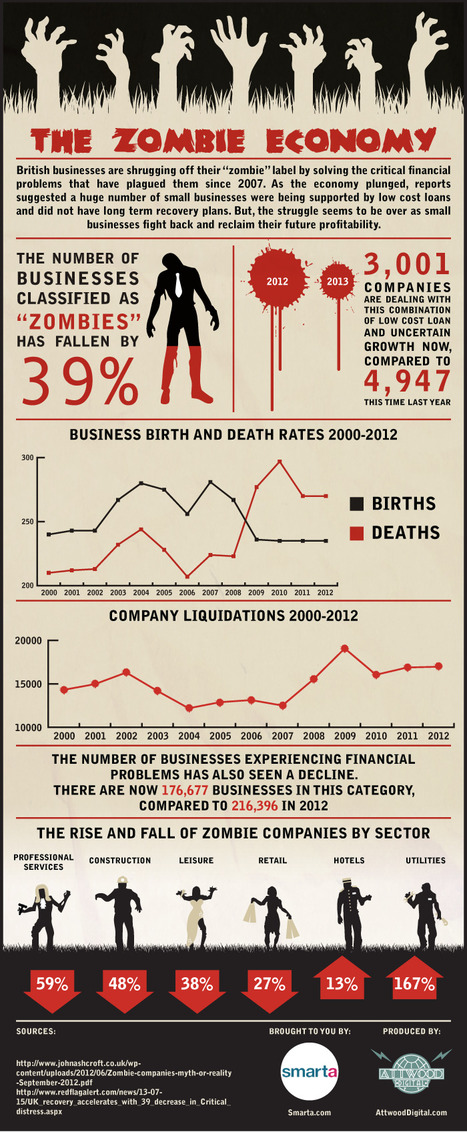British businesses are shrugging off their “zombie” label by solving the critical financial problems that have plagued them since 2007.
Marty
I think "Zombie" is a perfect description for many businesses in America too. I just visited a favorite gift store the other day to buy a funky shower curtain and the store was a shambles.
I ended up buying Girl with a Pearl Earring from CafePress.com. The gift businesses, like many businesses, have been through several waves of "Zombie-ficaiton" including the first web wave and now the platforming of the business by Etsy.com, CafePress and the like.
That the brick and mortar store I used to love is now a Zombie (walking dead) is sad but a result of the inability to the single store to compete without the Internet's help. Where once a crazy funky buyer (like my ex) could create relevance and buzz simply by BUYING now a story is needed, a coherent story with great hooks and emotional impact.
Mostly a story that must be told online first since attention is THERE and won't be shared with a Zombie unless the zombie can wake up and smell the aroma of that scented candle :). M
Related
Platforms Vs. Websites
http://scenttrail.blogspot.com/2011/09/internet-marketing-platforms-vs.html



 Your new post is loading...
Your new post is loading...



![Disruption, Entropy and the Future Of Everything [Marty Note] | BI Revolution | Scoop.it](https://img.scoop.it/ZqJ1B_WgxiuB6xqOUmuuyzl72eJkfbmt4t8yenImKBVvK0kTmF0xjctABnaLJIm9)







